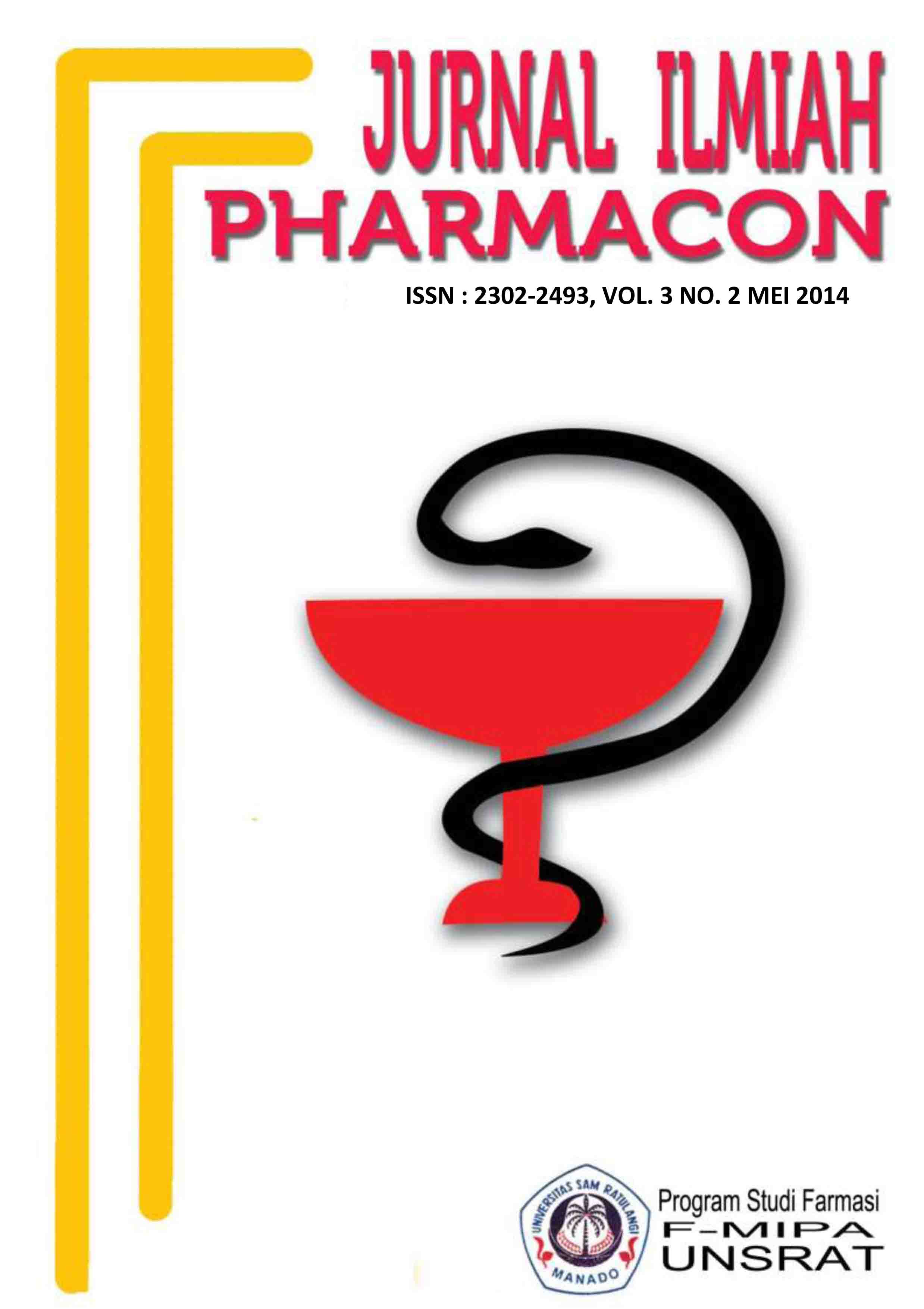PENGARUH INFUSA DAUN KEPAYANG (Pangium edule Reinw.) TERHADAP PENURUNAN KADAR KOLESTEROL DARAH TIKUS PUTIH JANTAN GALUR WISTAR (Rattus norvegicus)
DOI:
https://doi.org/10.35799/pha.3.2014.4770Abstract
The aims of this research is to determine the influence and relevance of increased doses on infused kepayang leaf (Pangium edule Reinw.) for decreasing the blood cholesterol levels in white male rats (Rattus novergicus). The subject of this study were 15 white male rats weight 130-200 gramme which were divided into 5 groups, consisted of 3 rats for each group. This research used experimental laboratory method with complete randomized design. The results were taken from twice measuring of blood cholesterol which are Pre and Post. Treatment began with a high-fat feeding for 7 days. Pre measuring was done at 8th day. Then treatments were given for each group, aquadest for group A (C-), simvastatin for group B (C+) and infusion of kepayang leaf with each dose for group C (10 g), group D (20 g) and group E (40 g). Post measuring was done at 2 hours then. Data were analyzed by using Paired t-test and One Way ANOVA. The results of statistical analysis didn’t show any significant differences among treatment groups. Consider from the average change and percentage, infusion dose of 40 g kepayang leaf gives the best decrease of blood cholesterol levels.
Â
Key words : Infusion of kepayang leaf, cholesterol, white male rats
Downloads
Published
How to Cite
Issue
Section
License
Authors who publish with this journal agree to the following terms:
- Authors retain copyright and grant the journal right of first publication with the work simultaneously licensed under a Creative Commons Attribution-NonCommercial 4.0 International License that allows others to share the work with an acknowledgement of the work's authorship and initial publication in this journal.
- Authors are permitted and encouraged to post their work online (e.g., in institutional repositories or on their website) prior to and during the submission process, as it can lead to productive exchanges, as well as earlier and greater citation of published work (See The Effect of Open Access)










